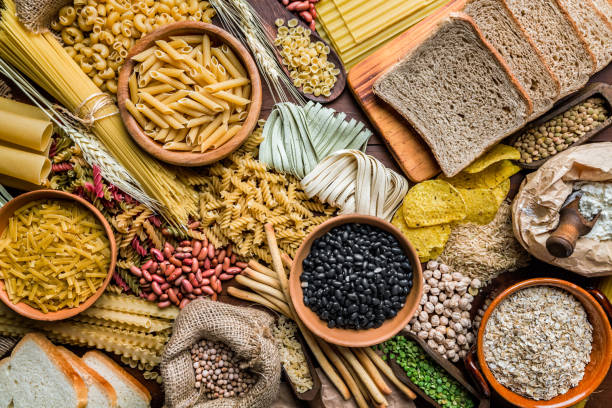I. Introduction
A. Definition of high-fiber foods
High-fiber foods are plant-based foods that contain large amounts of dietary fiber. Dietary fiber refers to the parts of plant foods that cannot be digested by the human body. Instead, they pass through the digestive system largely intact, providing bulk and promoting healthy bowel movements.
B. Importance of gut health
The gut, or gastrointestinal tract, plays a critical role in overall health and well-being. It is responsible for digesting food, absorbing nutrients, and eliminating waste from the body. A healthy gut also helps regulate immune function and reduces the risk of chronic diseases such as diabetes, heart disease, and certain cancers. Nitazoxanide 500 mg or Nizonide 500 is used to treat diarrhea caused by parasite infections of the intestines.
II. How high-fiber foods contribute to gut health
A. Promoting healthy digestion
Increasing bowel movement frequency
High-fiber foods help promote healthy digestion by increasing bowel movement frequency. This is because fiber adds bulk to the stool, making it easier to pass through the digestive system. By increasing bowel movement frequency, high-fiber foods can help prevent constipation and keep the digestive system functioning properly.
Preventing Constipation
Constipation is a common digestive problem characterized by infrequent bowel movements and difficulty passing stool. High-fiber foods can help prevent constipation by adding bulk to the stool and promoting regular bowel movements. This can help reduce discomfort and prevent more serious health problems from developing.
B. Feeding beneficial gut bacteria
Producing short-chain fatty acids
High-fiber foods are also important for feeding the beneficial bacteria in the gut. These bacteria help regulate the immune system, support digestion, and promote overall health. When fiber reaches the large intestine, it is fermented by gut bacteria to produce short-chain fatty acids (SCFAs). SCFAs are an important source of energy for gut cells and can help reduce inflammation and support healthy digestion.
Regulating Inflammation
The rash is a natural immune reaction that helps the body fight off infection and injury. However, chronic inflammation can contribute to a range of health problems, including gut problems. High-fiber foods can help regulate inflammation by promoting the growth of beneficial gut bacteria and producing SCFAs. These compounds can help reduce inflammation and promote overall gut health.
III. Types of high-fiber foods for gut health
A. Fruits and Vegetables
Fruits and vegetables are rich sources of fiber and are essential for maintaining gut health. Some of the best high-fiber fruits include berries, such as raspberries, blackberries, and strawberries, which are packed with antioxidants and fiber. Leafy greens, such as kale, spinach, and collard greens, are also great sources of fiber and are rich in vitamins and minerals. Cruciferous vegetables, such as broccoli, cauliflower, and Brussels sprouts, are high in fiber and also contain compounds that can help reduce inflammation.
B. Whole grains
Whole grains are another important source of fiber and are essential for promoting gut health. Oats are a particularly good source of fiber and contain a type of fiber called beta-glucan, which can help reduce cholesterol levels and promote healthy digestion. Brown rice and quinoa are also great sources of fiber and are rich in vitamins and minerals.
C. Legumes
Legumes, such as lentils, chickpeas, and black beans, are another important source of fiber and are essential for maintaining gut health. Legumes are also rich in protein and other nutrients, making them an important part of a healthy diet. Lentils are particularly high in fiber and can help regulate blood sugar levels and promote healthy digestion. Chickpeas and black beans are also high in fiber and can help reduce the risk of chronic diseases such as diabetes and heart disease.
IV. Conclusion
A. Recap of high-fiber foods’ importance for gut health
In summary, high-fiber foods play a crucial role in maintaining gut health. They promote healthy digestion, prevent constipation, feed beneficial gut bacteria, and help regulate inflammation. Fruits and vegetables, whole grains, and legumes are all excellent sources of fiber and should be included in a healthy diet to support gut health.
B. Encouragement to incorporate high-fiber foods into the diet.
Incorporating high-fiber foods into your diet may seem challenging at first, but it can have a significant impact on your gut health and overall well-being. Start by adding more fruits and vegetables to your meals, such as berries, leafy greens, and cruciferous vegetables. Choose whole grains, such as oats, brown rice, and quinoa, over refined grains. And don’t forget to include legumes, such as lentils, chickpeas, and black beans, in your meals.
View your news on Google News or contact our team 


